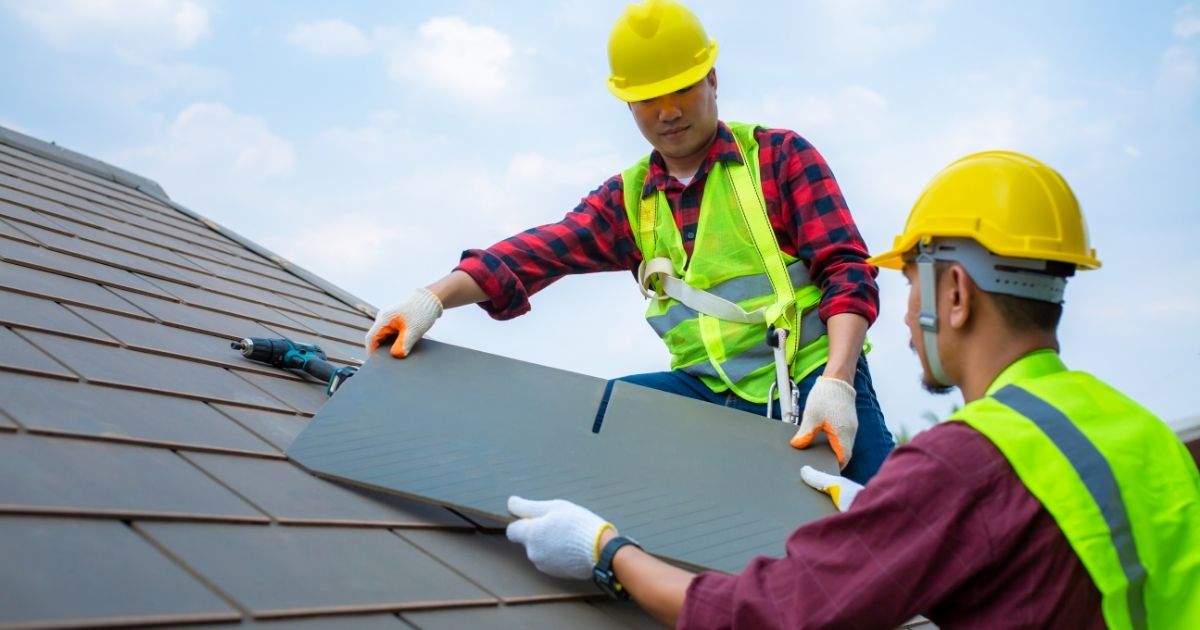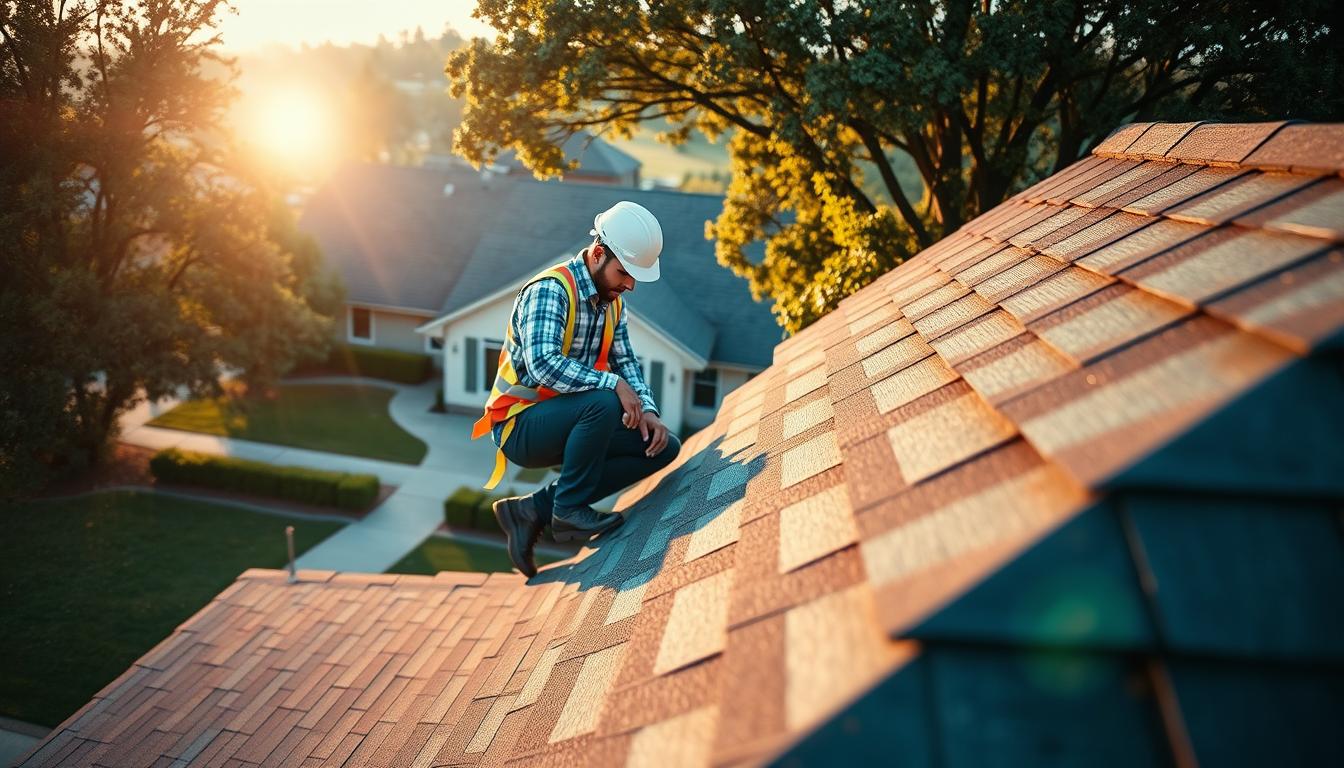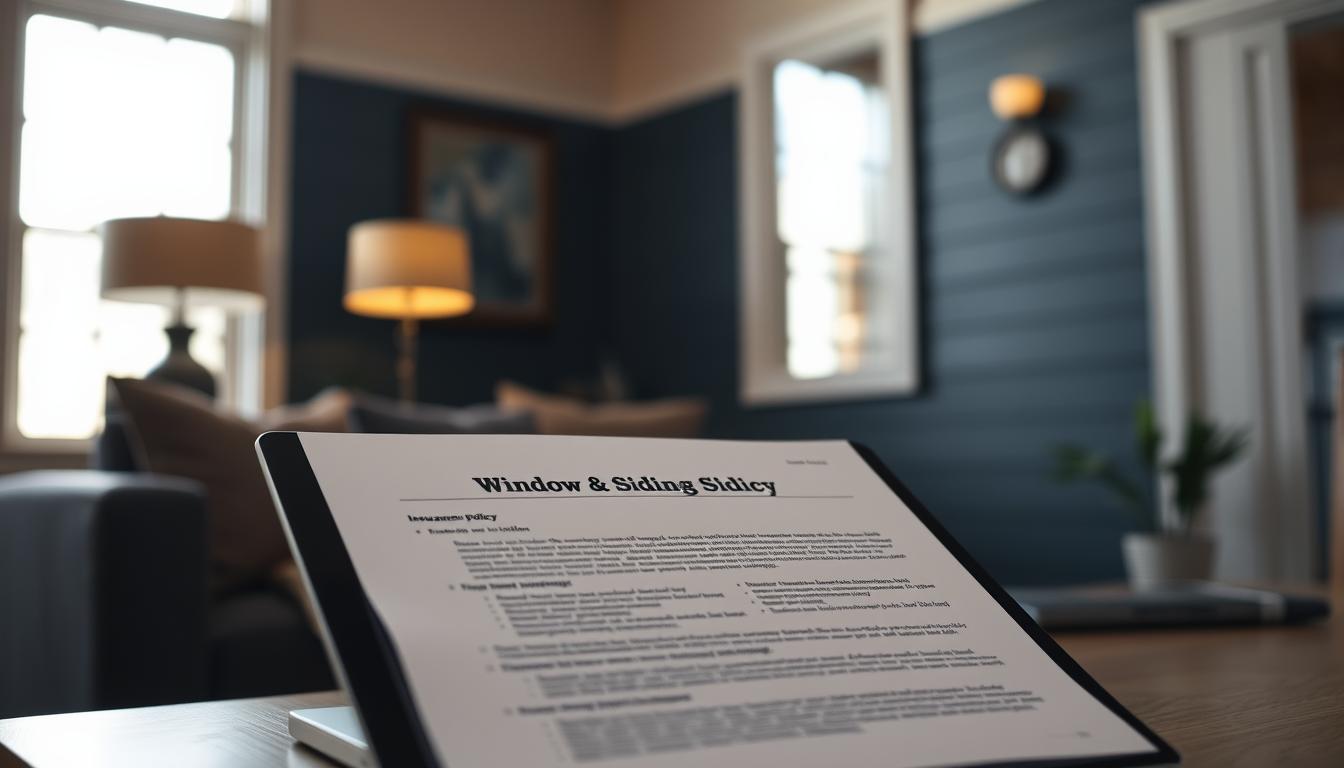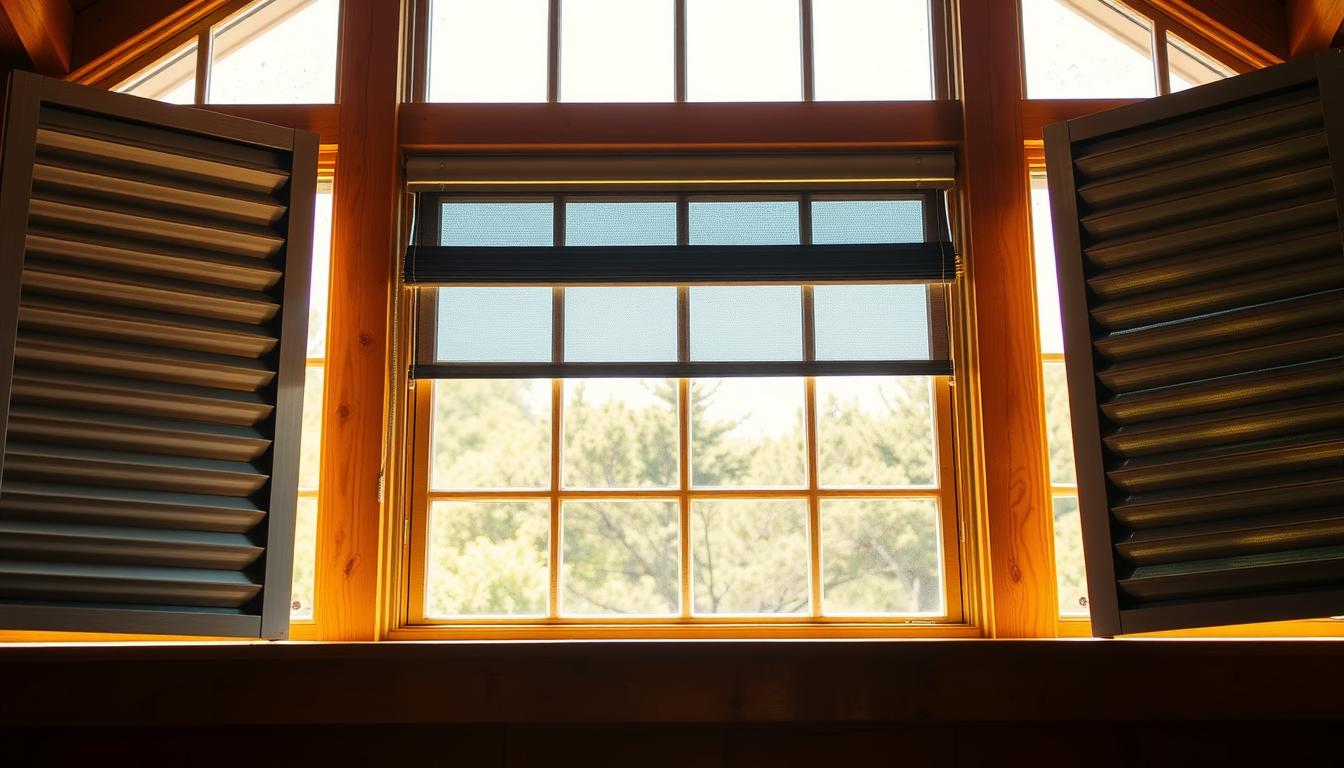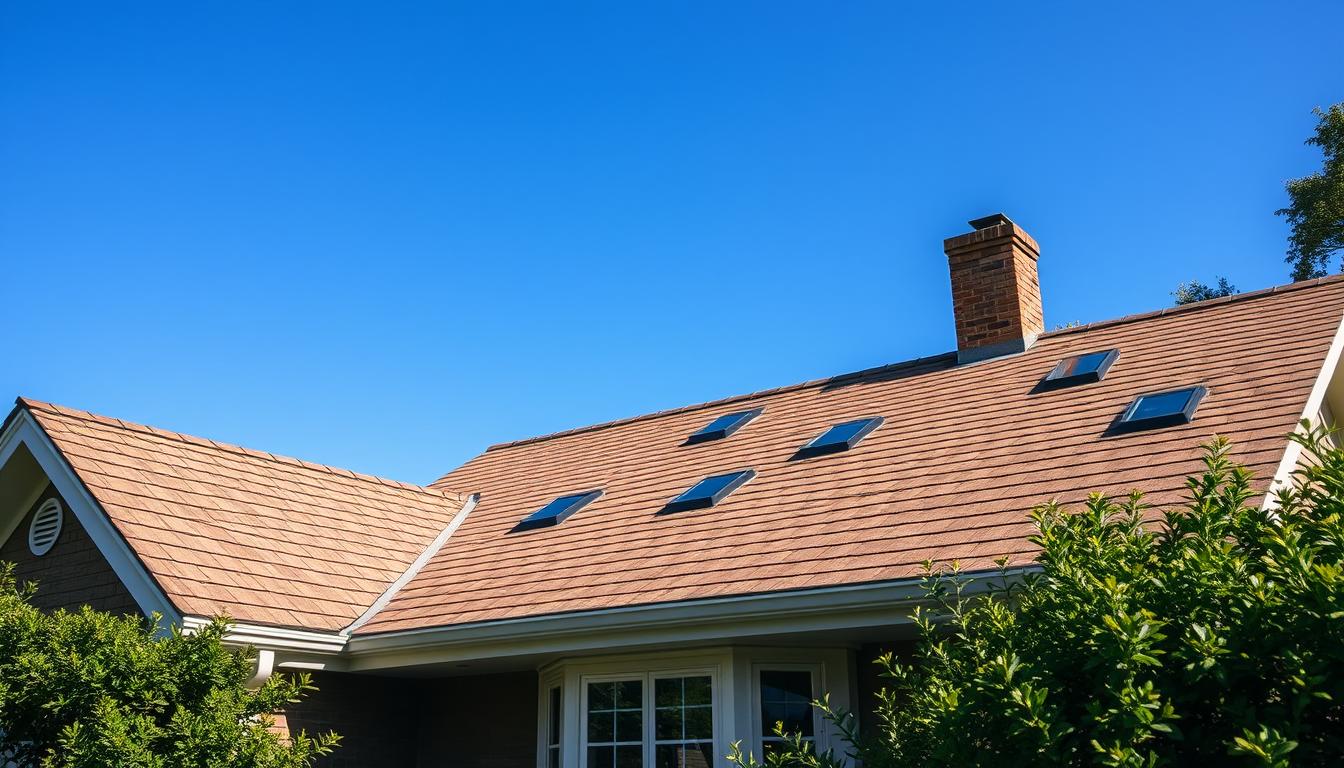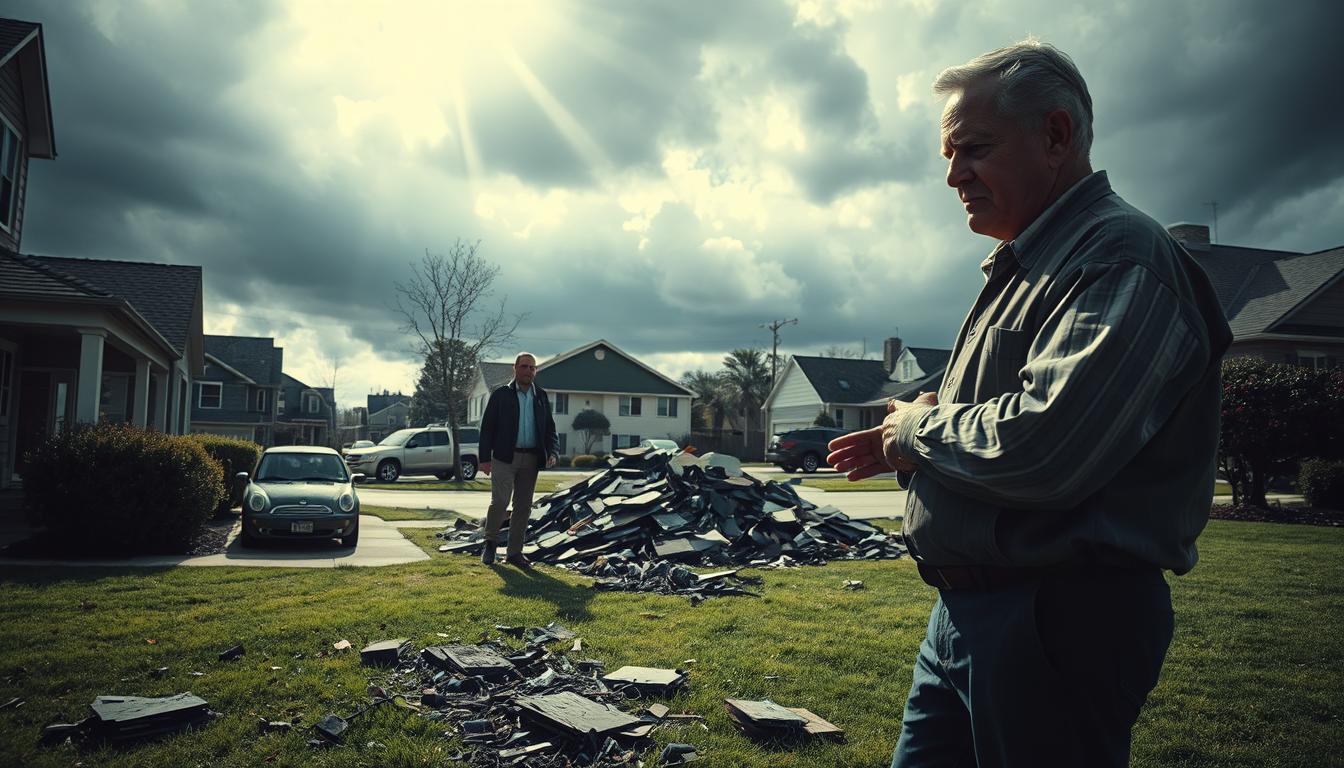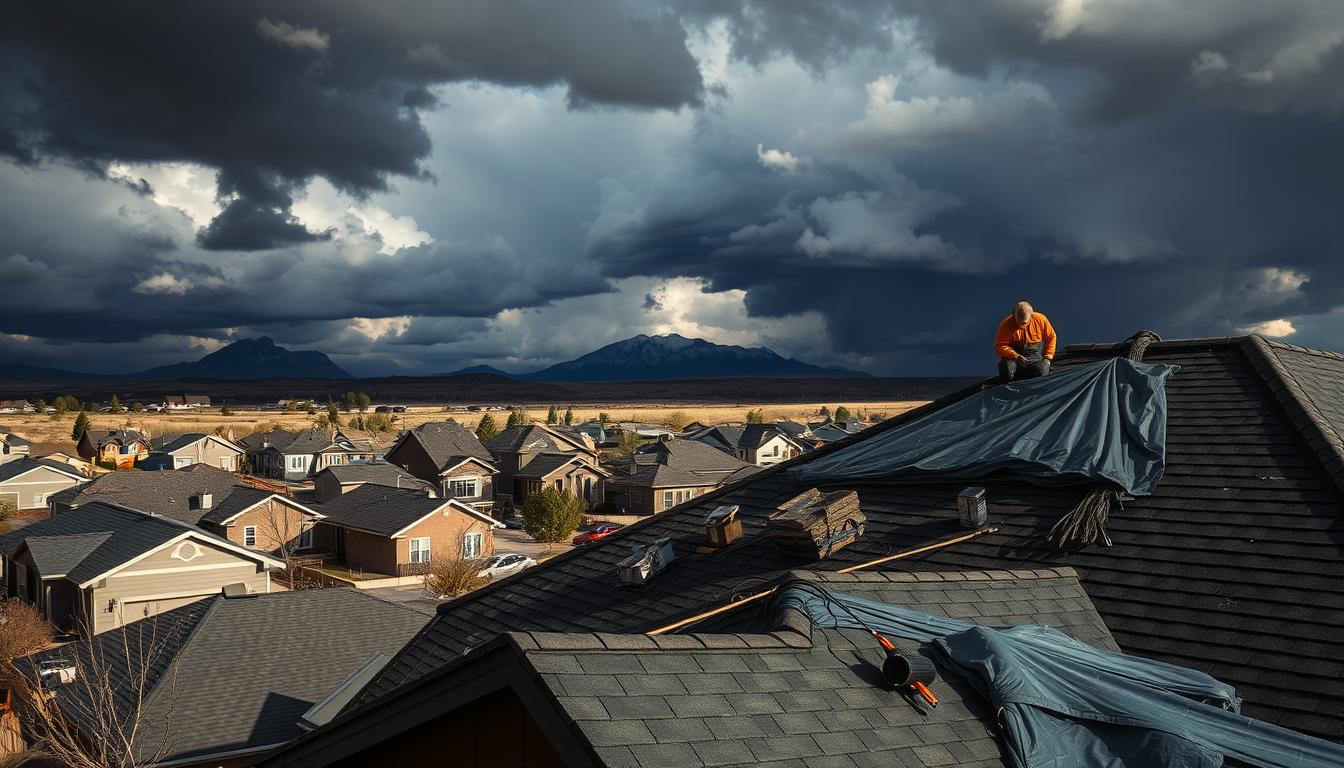Keeping your roof in good shape is key to your home or business. But, many people believe wrong things about roof care. We will clear up some big roof myths to make sure your roof stays strong and lasts longer.
Key Takeaways
- Regular preventative maintenance is key to making your roof last longer and spotting problems early.
- Fixing roofs needs special skills and safety steps that most people don’t have. So, getting help from pros is important.
- New roofs also need regular checks and upkeep to stay in top shape.
- Different roofs need different care levels, with some needing more attention than others.
- Good roof care can make your roof last longer, up to 21 years on average.
Myth: Roofs Only Need Maintenance When Issues Arise
Many think roofs only need fixing when they break. But, Preventative Roofing Maintenance is key to making roofs last longer and stay strong. A good Roof Inspection finds problems early, saving money and time. Waiting for leaks to start can cause more damage and cost more.
New roofs also need regular checks and care to last longer. Not doing this can make you lose your warranty and cause big, unexpected costs. Regular checks find small leaks or damaged shingles early. This means fixing them before they turn into big problems.
- Preventative maintenance can make a roof last 15-30 years, based on the material.
- Regular roof checks find problems early, saving money and trouble.
- Ignoring roof care can lead to expensive water damage and early roof replacement.
By understanding roofs need regular care, homeowners can keep them in good shape. Preventative Roofing Maintenance and Roof Inspections are key to a roof’s health and performance.
Myth: DIY Roof Repairs Are Safe and Effective
Many people think doing roof repairs by themselves is a good idea. But, it’s not as simple as it seems. Roof work needs special skills and safety steps that most homeowners don’t have.
The National Roof Certification and Inspection Association (NRCIA) says DIY roof fixes can cause bigger problems later. They can also be risky without the right safety gear. Roofing Contractor Services are key for good roof repairs and keeping the homeowner safe.
- The NRCIA warns against DIY roof repairs and suggests hiring a professional Roof Repair contractor.
- Wrong repairs can make things worse and cost more later.
- Fixing a roof without safety gear can hurt the homeowner.
A roof is a complex thing that needs experts. Giving your home’s Residential Roofing Advice to a skilled Roofing Contractor Services is the best way to keep your roof safe and lasting long.
Myth: New Roofs Don’t Need Maintenance
Many think a new roof means no upkeep is needed. But, this is not true. New roofs still need inspections and preventative maintenance to stay in good shape and last longer.
70% of homeowners believe new roofs don’t need upkeep. This belief can cause big problems later. It’s important to have roof inspections often. This helps fix small issues before they turn into big, expensive ones.
Even New Roofs Require Regular Inspections
A new roof needs care just like other parts of your home. Preventative roofing maintenance keeps your roof lasting longer, no matter its age. This includes:
- Regular checks by professionals to spot problems early
- Fixing any small damage or wear quickly
- Cleaning and looking after gutters and drainage
- Keeping ventilation and attic insulation right
By following roof longevity tips and being proactive with maintenance, your new roof will protect you for many years.
Roof Maintenance Myths: All Roofing Materials Are Equal
Many people think all roofing materials need the same care. But, this is not true. Each type of roofing has its own special needs. Homeowners and Residential Roofing Advice experts must know these to keep roofs in good shape for a long time.
Metal roofs might need less upkeep than others. But, they still need checks to stop rust or corrosion. Wood shingles, on the other hand, should be watched for rot or bug damage often. Knowing the right Commercial Roofing Best Practices means understanding how to care for each type of roof.
- Metal roofs may be less work but can get dented and need checks for rust or corrosion.
- Asphalt shingles might need more upkeep but are cheaper to fix or replace.
- Wood shingles should be checked often for rot and bug damage.
Not taking care of these specific needs can make roofs wear out faster and cost more to fix. By learning about Roofing Materials Care and getting expert advice, people can keep their roofs in top shape for many years.
Regular roof checks and early maintenance are key, no matter the roofing material. Understanding what your roof needs can save you money and trouble later. It keeps your roof safe and your property well-kept.
Myth: Gutters Are Separate from Roofs
Many people think their roof and gutters don’t connect. But, gutter care is key to keeping your roof strong and long-lasting. If gutters get clogged or damaged, they can hurt your roof’s work.
Recent surveys show 70% of homeowners don’t know how gutters affect roof health. Without good care, gutters can leak and cause mold, mildew, and water damage. This can make your roof weak, shorten its life, and lead to expensive fixes.
Gutter Maintenance Is Essential for Roof Health
For a long-lasting and strong roof, keep your gutters clean and fixed. This means clearing out leaves, fixing any cracks, and making sure water flows right. By doing preventative roofing maintenance, you keep your roof safe from clogged gutter damage and make it last longer.
Your roof and gutters work together. Ignoring one can hurt the other. By focusing on gutter care, you’re helping to keep your roof in good shape and protect your home’s value.
Myth: Roof Warranties Cover Everything
Many homeowners think their roof warranty will fix all roofing problems. But, this is not always true. Roof warranties have limits. It’s important to read the fine print to know what they cover.
Roof warranties cover small repairs like a broken shingle. They don’t cover damage from weather, neglect, or wrong installation. Even with extended warranties, homeowners might still have to pay for big repairs.
- Roof warranties depend on the company and regular upkeep.
- They don’t cover damage from weather or neglect.
- Most warranties are for small repairs, like a broken shingle.
To keep your roof in good shape, work with a trusted Roofing Contractor Services. They can give you Roof Longevity Tips and explain your warranty’s limits. Regular checks and fixing problems early can save you money and trouble later.
The Importance of Regular Roof Maintenance
Keeping your roof in good shape is key to protecting your home. By fixing problems early and doing regular checks, you can make your roof last longer. This saves you money and keeps your home safe from the weather.
A study in 2022 by the National Association of Realtors found that new roofs can fully pay for themselves. This shows how important it is to follow roof longevity tips and check your roof often. This keeps your property’s value high.
The Rich Co, Inc. (https://therichcoinc.com/, (719) 287-5385) helps homeowners and businesses keep their roofs in great shape. They offer expert inspections, cleaning, and repairs. Roofing contractor services from them make sure your roof is always ready, avoiding big repair costs later.
Don’t believe roof maintenance myths that could harm your property. With The Rich Co, Inc., your roof will always be in top shape.
It’s a good idea to have your roof checked every year to find problems early. If you ignore maintenance, you could face big risks. This can make your roof unsafe and shorten its life.
Working with a skilled roofing contractor means your roof gets the care it needs. This ensures it can handle your area’s weather well. It also makes your roof work better and last longer.
Conclusion
We’ve looked at many Roof Maintenance Myths, Roof Repair Misconceptions, and Roof Upkeep Fallacies in this article. These myths can lead to big mistakes if not fixed. By knowing about Residential Roofing Advice and Commercial Roofing Best Practices, you can protect your roof well.
It’s important to do regular maintenance and not try roof repairs by yourself. You also need to take care of your roof even if it’s new. Gutters and roofs work together, so they must be looked after together.
Don’t believe in these Roof Maintenance Myths. Stay smart and keep your roof in good shape. Fixing problems early and following best practices will make your roof last longer and save you money later.
FAQ
Do roofs only need maintenance when issues arise?
No, keeping up with regular maintenance is key for a roof’s life and health. Checking your roof often can spot problems early, saving you time and money. Waiting for a leak to fix things can lead to bigger, more expensive problems.
Are DIY roof repairs safe and effective?
No, it’s safer and better to hire professionals for roof repairs. Roof work needs special skills and safety steps, which most people don’t have. Fixing a roof wrong can cause more issues later, and trying it without safety gear is risky.
Do new roofs not need maintenance?
No, new roofs also need regular checks and upkeep to stay in good shape. This helps stop small problems from getting bigger, keeping your roof working well and lasting longer.
Are all roofing materials equal in maintenance needs?
No, different roofing materials need different levels of upkeep. For example, metal roofs might need less upkeep than wood shingles, which could need more checks for damage. Knowing what your roof needs is important for its care.
Are gutters separate from roofs?
No, gutters and roofs work together. If your gutters are blocked or damaged, it can hurt your roof’s work. Blocked gutters can cause leaks under your roof, making it weak and leading to mold and water damage. Cleaning your gutters often helps keep your roof strong and safe for a long time.
Does a roof warranty cover everything?
No, what your roof warranty covers depends on your roofing company and how well you maintain your roof. Most warranties don’t cover damage from weather or ignoring maintenance. They usually cover small repairs like a broken shingle or material flaws. Always read your warranty to know what it does and doesn’t cover.

